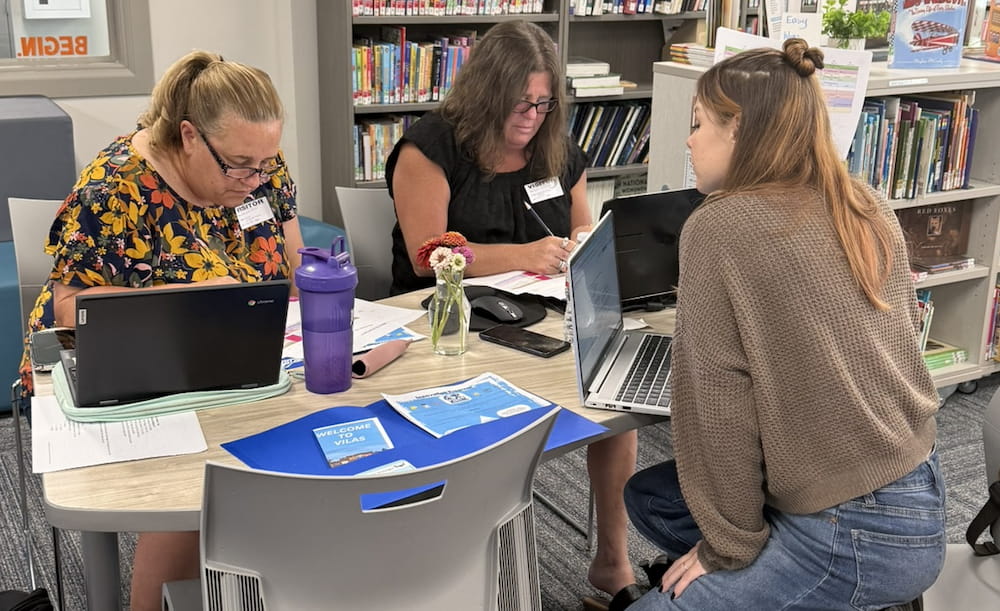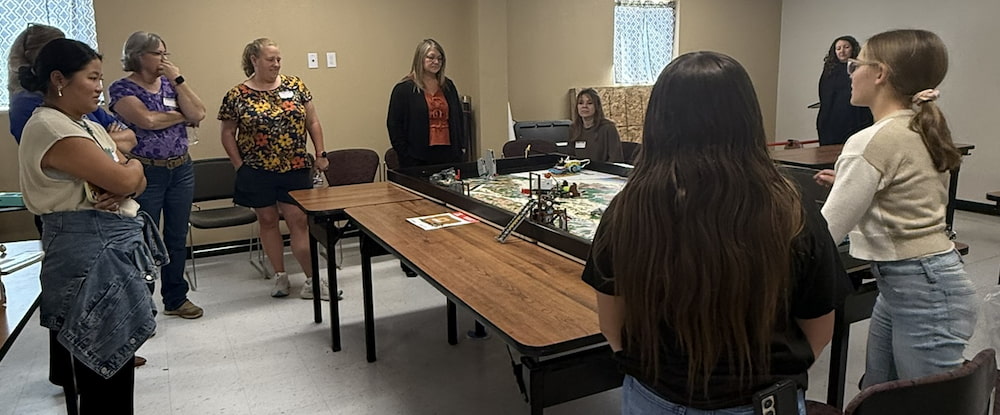Building Knowledge Together: How C-PEER is Redefining Education Research
Julia Cummings | School of Education and Human Development Sep 24, 2025.jpg?sfvrsn=1302f7b4_3)
At CU Denver’s School of Education & Human Development, the Center for Practice Engaged Education Research (C-PEER) is redefining how education research and practice work together. Through long-term partnerships, the Center co-creates knowledge that directly informs practice and policy, ensuring that research is relevant, actionable, and grounded in the realities of schools and districts.
C-PEER’s approach is rooted in a commitment to conducting research 'with' practitioners, not 'on' them. The work is embedded in the context of educational practice, designed to be immediately useful and responsive to persistent problems of practice with particular attention to diverse stakeholders. And, as the home of the Concerns Based Adoption Model (CBAM), C-PEER brings nationally and internationally recognized expertise in studying implementation and improvement. CBAM has been used in 42 states and 18 countries.
Partnering for Impact: The S-CAP Story

School leaders dive into data with support from CU Denver’s C-PEER Center. They are reviewing surveys, interviews, and dashboards designed together to strengthen their System Support Review process.
One of C-PEER’s most enduring partnerships is with the Student-Centered Accountability Program (S-CAP), a network of 24 rural Colorado school districts committed to rethinking traditional accountability systems. Since 2017, C-PEER has served as S-CAP’s research partner, helping design and refine System Support Reviews (SSRs) — peer-led site visits that generate actionable feedback for school improvement. The System Support Reviews have become a cornerstone of S-CAP's work—providing actionable, peer-informed feedback that helps them make smarter decisions for their students.
“In our experience working with Drs. Seidel and O’Brian, we have seen firsthand the immense value of their ability to work collaboratively with external stakeholders, develop effective research measures, and apply evidence-based practices to solve real-world challenges,” said Kyle Stumpf, superintendent of Holyoke Re-1J School District, Colorado. Lisa Yates, superintendent of Buena Vista School District, Colorado, adds: “Specifically, the Student-Centered Accountability Program has been recognized and accepted by state leaders and local communities because of the exceptional research conducted through C-PEER.”
Statewide Collaboration: TLCC Survey
C-PEER also partners with the Colorado Department of Education (CDE) to support the Teaching and Learning Conditions Colorado (TLCC) survey, a biennial statewide effort that captures educators’ perspectives on the conditions shaping teaching and learning. C-PEER helps ensure the survey’s integrity and leads research that translates the results into insights for policy and practice.
“The Colorado Department of Education has appreciated the longstanding relationship with the University of Colorado Denver’s C-PEER Center,” said Lisa Midler, executive director for accountability and continuous improvement at the CDE. “The leaders and the staff have deep technical expertise combined with a solid understanding of the way the education system works in our state. They have been partners on everything ranging from design and research on the Teaching and Learning Conditions in Colorado survey (statewide survey for school-based educators) to our statewide accountability system. We are fortunate to have such strong partners.”
Implementing a New Literacy Curricular Resource
In 2022, Jefferson County Public Schools (Jeffco), one of Colorado’s largest districts, launched a major initiative to implement a new literacy curriculum resource across 74 elementary schools. Recognizing the complexity of this change, Jeffco partnered with C-PEER to conduct an implementation study designed to understand how the change was unfolding and how to best support educators along the way.
Using the Concerns-Based Adoption Model (CBAM) framework, C-PEER and Jeffco’s Research and Assessment Design team worked side by side to examine three critical dimensions of implementation:
- Stages of Concern: What were teachers and school leaders thinking and feeling about the new resource?
- Levels of Use: How were teachers using the curriculum in their classrooms?
- Innovation Configurations: To what extent were practices aligning with the district’s vision for literacy instruction?
This collaborative approach provided Jeffco with diagnostic insights rather than summative judgments. These insights informed targeted recommendations for professional learning, coaching, and resource alignment, helping the district support teachers in moving from initial use toward deeper, more effective implementation.
For Jeffco, the value of this partnership was twofold: actionable guidance for improving literacy instruction and a model for how research can serve practice in real time.
Bringing Research and Practice Together

C-PEER Center partners listen as students share their early-year work and research.
“Our work is rooted in a simple idea: educational research should make a difference for the people it serves,” said Kent Anderson Seidel, PhD, founding co-director of C-PEER and associate professor in CU Denver’s Research and Evaluation Methods program. “At C-PEER, we partner with educators, district leaders, and communities to co-design research that responds directly to the challenges they face.”
C-PEER co-director Julie Oxenford O’Brian, PhD, shared that “By connecting research expertise with on-the-ground realities, we aim to generate insights that not only inform policy and practice but also empower those working every day to improve outcomes for learners.”
Interested in partnering with C-PEER or learning more about us? Email [email protected] or [email protected] visit the C-PEER website to explore their work.